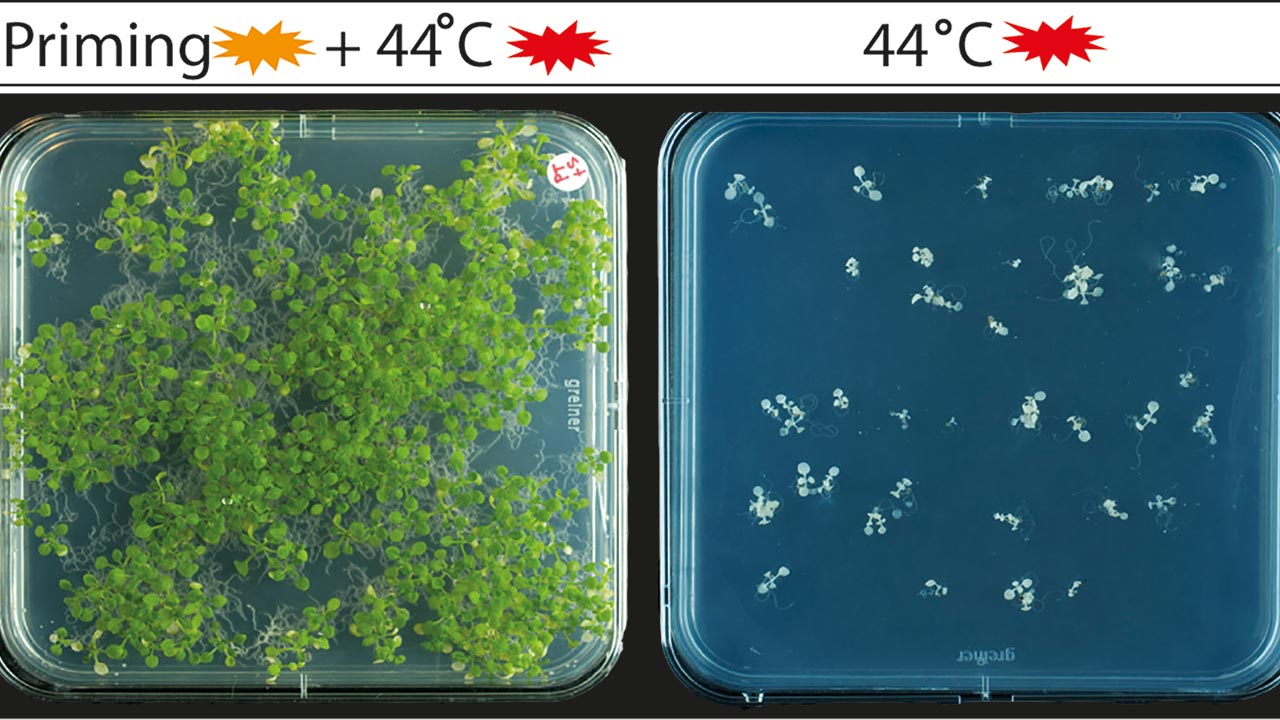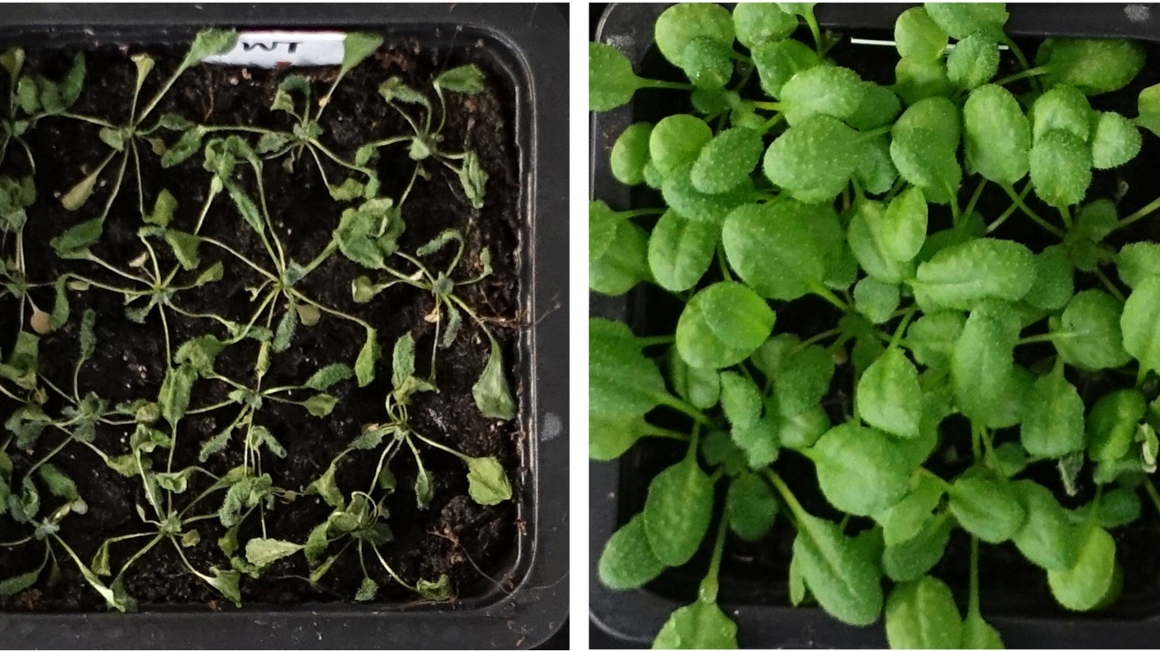Molecular memory: Plants' reaction to heat stress
The meristem tissue in the shoot apex, which is important for growth, develops a memory for heat stress in plants that helps them survive. Researchers from Potsdam have observed this.

Stress is unhealthy - for both humans and plants. Unlike humans or animals, however, plants cannot avoid stress, e.g., they cannot flee from heat into the shade or into cooler areas. That is why plant cells have a number of adaptation mechanisms. Researchers have now been able to show that the mechanisms in the shoot meristem are particularly effective if the plant has already survived heat. This type of tissue, which is so important for growth, develops a "stress memory" at the epigenetic level, as the research team reports in the journal Molecular Plant.
Tissue-specific mechanism
"In general, individual cells are able to respond to an acute stress. This happens at different levels," explains Justyna Jadwiga Olas of the Max Planck Institute for Molecular Plant Physiology. For example, metabolism could be altered or corresponding genes could be switched on or off to produce more or fewer copies of certain proteins in the cell. However, the cells of the shoot apical meristem have another mechanism. "Compared to other organs, such as leaves, we showed that there is independent, tissue-specific regulation in the meristem," Olas reports. "Both the components and the rates of the individual reactions are very different from reactions in other organs."
Four genes involved
Analyses of exactly which genes increased or decreased in translation into proteins during heat helped the experts to identify the "stress memory" at the molecular level. Four genes are involved: one of the genes codes for an aldolase - an enzyme of carbohydrate metabolism responsible for energy supply - one for a heat shock protein that protects other proteins from destruction under heat, and the other two for two stem cell regulators.
Potential for plant breeding
Arabidopsis thaliana, the plant on which the studies were carried out, only possesses this property after it has survived a mild heat phase. The meristem survives a second, more severe heat wave thereafter, allowing the plant to continue growing after the heat and even replace deceased organs. Plants without this imprinting suffer greatly from a first heat or die. It was noticeable that heat imprinted plants did not continue to grow until the heat subsided. "Growth inhibition during a heat period makes absolute sense and is necessary for survival, since this also prevents flower formation during this time and thus counteracts a possible loss of yield," explains Bernd Müller-Röber of the Max Planck Institute for Molecular Plant Physiology. The better understanding of heat memory should now help plant breeding in the medium term to make new varieties more resistant to the consequences of the climate crisis.
bl


